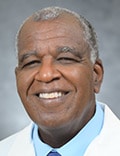The Association of Black Cardiologists has launched a new initiative to raise awareness of the effects of “cardiology deserts” — counties or neighborhoods in which Black residents have little to no access to a cardiologist. The campaign is focused on Louisiana, Georgia, Mississippi, and Arkansas.
More than 16 million Black Americans have few or no options for cardiology care, with the majority of cardiology deserts in the nation’s south, according to research from GoodRx. A 2024 study in the Journal of the American College of Cardiology (JACC) found that almost half of US counties do not have a practicing cardiologist; this proportion rises to 86% in rural counties and comprises 22 million Americans.

“Higher poverty rates, lower insurance coverage, and less availability of specialists for referrals then translate potentially into more heart attacks, heart failure, and complicated care,” said Keith C. Ferdinand, MD, the former chief science officer for the Association of Black Cardiologists and Gerald S. Berenson chair in preventative cardiology at the Tulane University School of Medicine in New Orleans.
On average, people in counties without a cardiologist have a life expectancy of one year shorter than people with easier access to such specialists, the JACC researchers found. Mississippi and Louisiana have some of the highest rates of death from heart disease in the country, according to the CDC.
The new campaign aims to empower patients to work with their primary care providers to better control their hypertension and lipid levels. The biotechnology firm Amgen is supporting the effort with educational initiatives to help patients manage their cardiac risk factors with a combination of medications, exercise, and a healthier diet.
As part of the campaign, the members of the association will be assessing blood pressure and cholesterol levels in community settings. The group is also offering patients a free cookbook with recipes for heart-healthy yet tasty meals.
“We will go wherever we can in order to identify risk factors and direct patients to federally qualified health centers or primary care clinicians who can help them control their risk,” Ferdinand told Medscape Medical News.
Looming over the new effort is the concern that Medicaid cuts in the Trump administration’s new budget will worsen disparities in cardiology outcomes even more than they exist today, particularly for those living in cardiology deserts. “It could include very extreme barriers when needed for referral to a cardiovascular specialist,” Ferdinand said.
“What’s particularly concerning about some of the Medicaid cuts is that those at highest risk will be most affected,” said Stacey Rosen, MD, a cardiologist for Northwell Health in New York and volunteer president of the American Heart Association (AHA).
While regular access to preventive care — ideally from a cardiologist but at least from a primary care provider — improves health outcomes, Rosen said any reduction in funding for Medicaid could exacerbate cardiovascular outcomes.
The effects of cuts could be even wider, she added. Any cardiology clinic or health practice that relies on Medicaid funds will see a drop in income as these funds decrease, potentially affecting their ability to serve all their patients.
Prior to the passage of the new bill, the AHA lobbied against Medicaid cuts and cuts in food assistance. The AHA is now working to reverse the provisions it believes are harmful, and the American College of Cardiology (ACC) is engaged in similar efforts.
“We’re still waiting to see how this plays out, because there are many provisions on this bill on a scattered schedule of when they roll in,” said William Van Decker, MD, cardiologist at Temple Health in Philadelphia and chair of the ACC’s Health Affairs Committee. “The biggest hits probably won’t be for a couple of years.”
Although the bulk of the Medicaid cuts would be in 2027 and 2028, according to the Center for American Progress, their potential scope concerns Van Decker and all other ACC members, he said.
“It’s been estimated that 28% of adults covered by Medicaid have a history of active cardiovascular disease,” Van Decker said, citing research from the Kaiser Family Foundation. “That doesn’t even include people who present with acute cardiovascular disease, which could be life-threatening for access, and also those people who need preventive care.”
Van Decker added that if some portion of the Medicaid population goes uninsured, they will postpone preventive cardiology care and may wind up in the emergency room after their condition has become severe. “They’ll present to emergency rooms with acute infarctions when they could have been found with angina prior,” he said.
In Louisiana, Ferdinand shared these concerns while pointing to the patient empowerment efforts of the Association of Black Cardiologists’ new cardiology deserts campaign, which is expected to last at least 3 years, if not longer. “We’re in this for the long haul,” Ferdinand said. “We’re trying to make a real difference. It’s not a one and done.”
Amgen is funding the cardiology deserts campaign. Ferdinand, Van Decker, and Rosen reported having no relevant financial conflicts of interest.
Marcus A. Banks, MA, is a journalist based near New York City who covers health news with a focus on new cancer research. His work appears in Medscape Medical News, Cancer Today, The Scientist, Gastroenterology & Endoscopy News, Slate, TCTMD, and Spectrum.


 Admin_Adham
Admin_Adham


